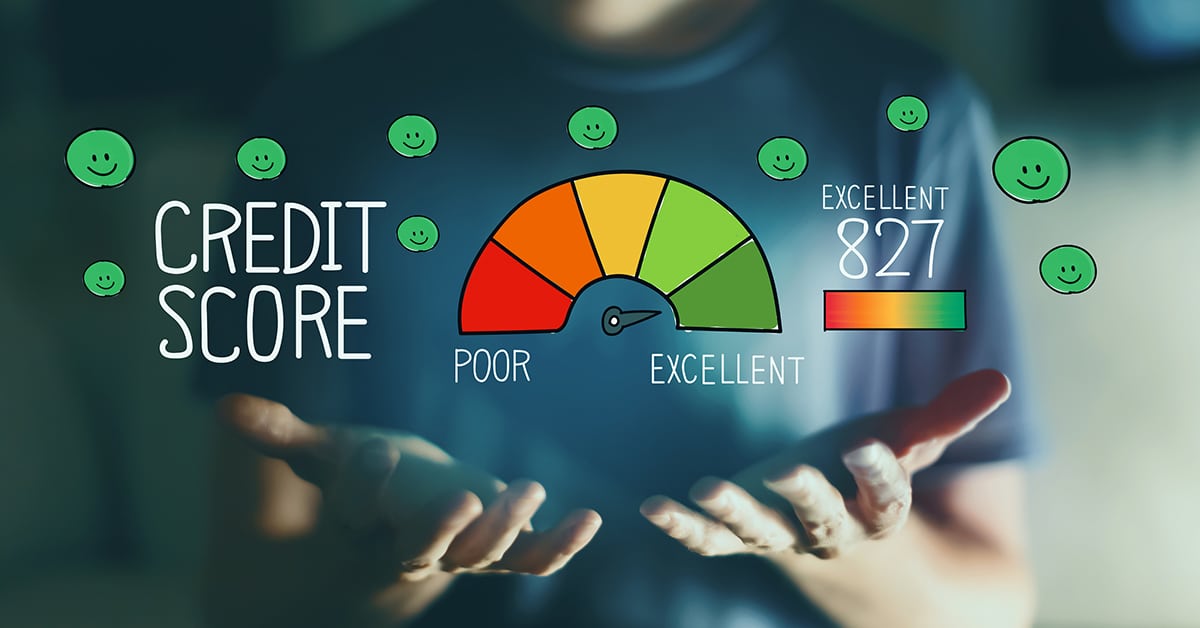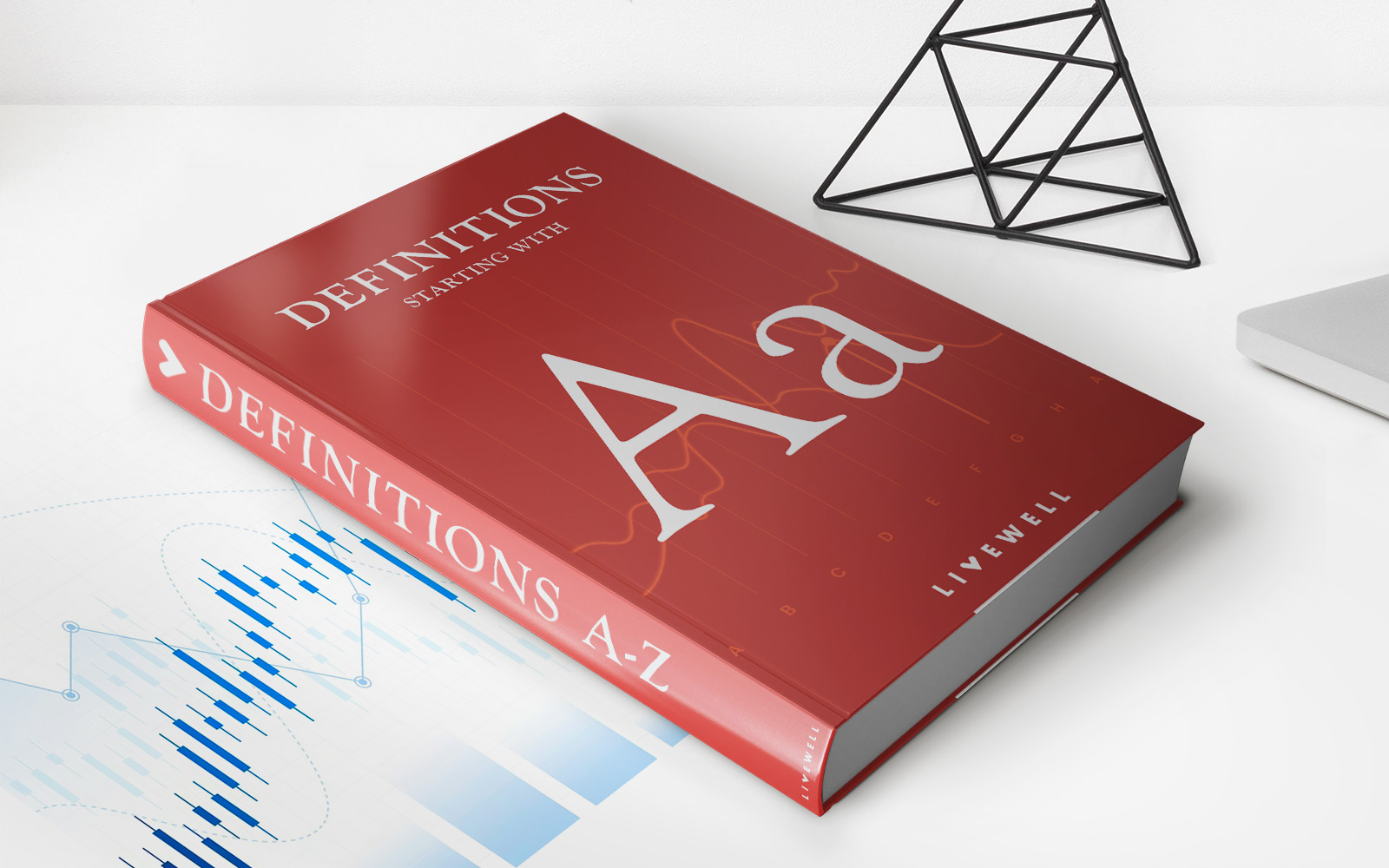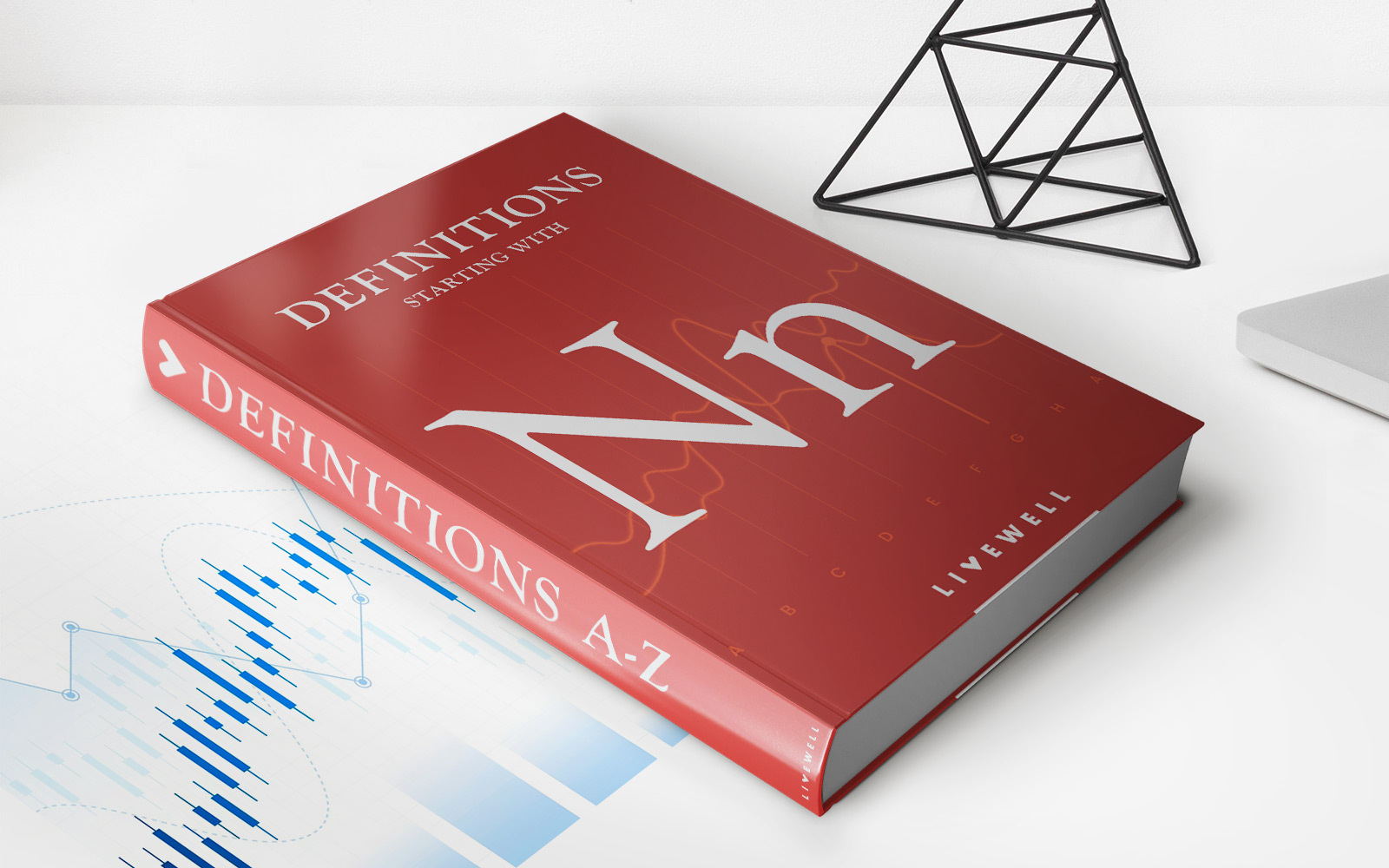Home>Finance>What Credit Score Do I Need For A Student Loan?


Finance
What Credit Score Do I Need For A Student Loan?
Published: November 3, 2023
Discover the credit score required for student loans and master the art of financing your education with this comprehensive guide.
(Many of the links in this article redirect to a specific reviewed product. Your purchase of these products through affiliate links helps to generate commission for LiveWell, at no extra cost. Learn more)
Table of Contents
- Introduction
- Understanding Student Loans
- Importance of Credit Score in Student Loans
- Types of Student Loans
- Credit Score Requirements for Federal Student Loans
- Credit Score Requirements for Private Student Loans
- How to Improve Your Credit Score for Student Loans
- Alternatives for Bad or No Credit Score
- Conclusion
Introduction
When it comes to pursuing higher education, many students turn to student loans to fund their studies. However, obtaining a student loan is not as simple as filling out an application. Lenders consider various factors before approving loan applications, with one of the most crucial factors being the borrower’s credit score.
Your credit score is a numerical representation of your creditworthiness, indicating your ability to manage and repay debt. It serves as a key indicator for lenders to assess your financial responsibility and determine the terms of a loan. For students who have yet to establish a credit history, understanding the credit score requirements for student loans becomes essential.
In this article, we will explore the various types of student loans and the importance of credit scores in the loan approval process. We will also delve into the credit score requirements for both federal and private student loans, along with tips on how to improve your credit score to increase your chances of loan approval. Lastly, we will discuss alternatives for students who have bad or no credit history.
By the end of this article, you will have a clear understanding of the role credit scores play in obtaining a student loan and the strategies you can implement to improve your creditworthiness.
Understanding Student Loans
Before we delve into the credit score requirements for student loans, it is essential to have a solid understanding of what student loans are and how they work.
Student loans are financial tools designed to help students cover the costs of their education, including tuition, books, and living expenses. These loans are typically offered by banks, credit unions, and the government.
There are two primary types of student loans: federal student loans and private student loans. Federal student loans are issued by the government, while private student loans are offered by private lenders, such as banks and credit unions. Each type of loan has its own set of terms and conditions, including repayment plans, interest rates, and credit score requirements.
One of the significant advantages of federal student loans is that they often offer lower interest rates compared to private student loans. They also have more flexible repayment options, including income-driven repayment plans and loan forgiveness programs. Additionally, federal student loans do not typically require a high credit score for eligibility, making them accessible to students with limited or no credit history. However, there are borrowing limits for federal student loans, which may not cover the full cost of education for some students, leading them to explore private student loan options.
On the other hand, private student loans are usually used as supplemental funding to cover any expenses not covered by federal loans. Private lenders assess borrowers based on their creditworthiness, including their credit score, income, and debt-to-income ratio. These loans often have higher interest rates and less flexible repayment options compared to federal loans. Private student loans are more suitable for students with an established credit history or for those with a cosigner who has a good credit score.
Now that we have a basic understanding of student loans, we can explore how credit scores come into play when applying for these loans.
Importance of Credit Score in Student Loans
When applying for a student loan, your credit score plays a significant role in the approval process. Lenders use credit scores to evaluate your creditworthiness and determine the level of risk in lending to you. A higher credit score indicates a lower risk borrower, making it more likely for lenders to approve your loan application and offer favorable terms.
For federal student loans, credit score requirements are generally more lenient compared to private student loans. In fact, most federal loans, such as Stafford loans and Perkins loans, do not require a minimum credit score for eligibility. Instead, these loans are awarded based on financial need, which is determined by factors such as family income and the cost of attendance.
On the other hand, private student loans have stricter credit score requirements. Private lenders rely heavily on credit scores to assess the borrower’s ability to repay the loan. A higher credit score gives lenders confidence that you have a track record of managing your finances responsibly and are likely to make timely loan repayments.
Typically, private lenders set their own minimum credit score requirements, which can range from fair (around 620) to excellent (above 720). The specific credit score requirement may vary depending on the lender and the loan program. It is essential to check with each lender to determine their specific credit score criteria.
A higher credit score not only increases your chances of loan approval but also opens the door to more favorable interest rates and loan terms. Lenders may offer lower interest rates and more flexible repayment options to borrowers with excellent credit scores. Conversely, if you have a lower credit score, you may be approved for a loan but be subject to higher interest rates, which can significantly impact the total cost of your loan over time.
It is crucial to note that credit scores are not the sole factor lenders consider when evaluating loan applications. Lenders may also take into account factors such as income, employment history, and debt-to-income ratio. However, maintaining a good credit score is an essential component in securing favorable student loan terms and minimizing the financial burden of repayment.
Types of Student Loans
When it comes to financing your education, there are various types of student loans to consider. Understanding the differences between these loan options can help you make an informed decision about which one is best suited to your needs. The two primary types of student loans are federal student loans and private student loans.
Federal Student Loans:
Federal student loans are loans funded by the U.S. Department of Education. These loans offer borrowers unique advantages, such as fixed interest rates, income-driven repayment plans, and loan forgiveness options. There are several types of federal student loans:
- Direct Subsidized Loans: These loans are available to undergraduate students with demonstrated financial need. The government covers the interest on these loans while you are in school or during deferment periods.
- Direct Unsubsidized Loans: Unlike subsidized loans, unsubsidized loans are not based on financial need. Interest accrues on these loans from the time they are disbursed, and you are responsible for repaying both the principal and interest.
- Direct PLUS Loans: These loans are available to graduate students and parents of dependent undergraduate students. PLUS loans have a higher interest rate and require a credit check for eligibility.
- Perkins Loans: Perkins loans are available to undergraduate, graduate, and professional students with exceptional financial need. These loans have low interest rates and limited availability.
Private Student Loans:
Private student loans are offered by banks, credit unions, and other financial institutions. Unlike federal student loans, private loans are not funded by the government and have different terms and conditions. Here are some key characteristics of private student loans:
- Interest Rates: Private student loans may have variable or fixed interest rates, depending on the lender. Interest rates can be influenced by factors such as your credit score, income, and the type of repayment plan.
- Eligibility Criteria: Private lenders have their own eligibility requirements, which may include a minimum credit score, income verification, and a cosigner for borrowers with limited or no credit history.
- Repayment Options: Private student loans may have different repayment plans and terms compared to federal loans. It’s important to carefully review and understand the terms before borrowing.
- Loan Limits: The amount you can borrow through private student loans may vary depending on the lender, your creditworthiness, and the cost of attendance.
Choosing between federal and private student loans depends on your individual circumstances and financial goals. It’s recommended to explore federal loan options first, as they often offer more favorable terms and protections. If additional funding is needed, private student loans can supplement federal loans, but it’s important to compare interest rates, repayment terms, and other features before making a decision.
Credit Score Requirements for Federal Student Loans
One of the key advantages of federal student loans is that they have more flexible credit score requirements compared to private student loans. In fact, most federal student loans do not have a minimum credit score requirement for eligibility.
When applying for federal student loans, such as Direct Subsidized Loans, Direct Unsubsidized Loans, or Perkins Loans, your credit score is not a determining factor in whether you are approved for the loan. Instead, federal loans are primarily based on financial need.
Financial need is determined by completing the Free Application for Federal Student Aid (FAFSA). The FAFSA takes into account various factors such as your family’s income, assets, and household size. The information provided on the FAFSA is used to calculate your Expected Family Contribution (EFC), which helps determine the amount of financial aid you are eligible to receive.
It is important to note that while federal student loans do not require a minimum credit score, you must meet other eligibility requirements. These requirements include being a U.S. citizen or an eligible noncitizen, having a valid Social Security number, being enrolled in an eligible degree or certificate program, and maintaining satisfactory academic progress.
However, there is an exception when it comes to Direct PLUS Loans. Direct PLUS Loans are federal loans available to graduate students and parents of dependent undergraduate students. Unlike other federal student loans, Direct PLUS Loans do require a credit check. However, the credit check primarily looks for adverse credit history rather than a specific credit score. Adverse credit history includes factors such as bankruptcy, foreclosure, or unpaid debts.
If you have an adverse credit history, you may still be able to obtain a Direct PLUS Loan by securing an endorser or documenting extenuating circumstances. This allows borrowers with less-than-perfect credit to still access federal student loans.
In summary, federal student loans do not have a minimum credit score requirement for eligibility. Instead, financial need and other eligibility criteria, such as citizenship and academic progress, determine your eligibility for federal student loans. This makes federal loans an accessible option for students with limited or no credit history.
Credit Score Requirements for Private Student Loans
Unlike federal student loans, private student loans are offered by private lenders and have stricter credit score requirements. Private lenders rely heavily on credit scores to assess a borrower’s creditworthiness and ability to repay the loan. Therefore, having a good credit score is essential when it comes to private student loans.
Each private lender sets its own credit score requirements, so the specific minimum credit score needed may vary. However, on average, a credit score of 650 or higher is often considered a minimum requirement for private student loan eligibility.
Alongside the credit score, private lenders also consider other factors when evaluating loan applications, including income, employment history, and debt-to-income ratio. Your credit history, which includes factors like credit utilization, payment history, and length of credit, is also taken into account.
It’s important to note that borrowers with a higher credit score will typically receive more favorable interest rates and loan terms. Higher credit scores indicate a lower risk of default, so lenders are more willing to offer competitive rates to these borrowers. On the other hand, borrowers with lower credit scores may still be eligible for private student loans, but they may face higher interest rates and less favorable terms.
If you have a limited or insufficient credit history, you may consider applying for a private student loan with a cosigner. A cosigner is someone who agrees to take equal responsibility for loan repayment if the primary borrower is unable to make payments. Lenders often consider the combined creditworthiness of the borrower and cosigner, which can help secure a loan with better terms.
It’s worth noting that building and maintaining a good credit score is crucial for favorable private student loan options. This can be achieved by making consistent and timely payments on your existing debts, keeping credit card balances low, and avoiding unnecessary credit inquiries or new credit applications.
Before applying for a private student loan, it’s essential to research multiple lenders and compare their offerings. Each lender may have different credit score requirements and terms, so it’s wise to shop around to find the best fit for your needs and financial situation.
Ultimately, a higher credit score increases your chances of approval for private student loans and allows you to access loans with more favorable terms. It’s essential to be proactive in managing your credit to strengthen your chances of securing a private student loan with competitive rates and repayment options.
How to Improve Your Credit Score for Student Loans
If you’re considering applying for student loans, it’s essential to understand that having a good credit score can significantly impact your loan eligibility and terms. Here are some strategies you can implement to improve your credit score:
- Prioritize making on-time payments: Payment history is one of the most critical factors that contribute to your credit score. Always make your credit card payments, utility bills, and other debts on time to demonstrate responsible financial behavior.
- Reduce credit card balances: High credit card balances can negatively impact your credit score. Aim to keep your credit card utilization ratio (the percentage of your available credit that you’re using) below 30%. Paying down your balances can help improve your credit score.
- Avoid applying for unnecessary credit: Each time you apply for credit, it results in a hard inquiry on your credit report, which can temporarily lower your credit score. Only apply for credit when necessary and be strategic in your applications.
- Keep credit accounts open: Closing old credit accounts can shorten your credit history, which may negatively impact your credit score. Even if you don’t use a particular credit card, keep the account open to maintain a longer credit history.
- Monitor your credit report: Regularly review your credit report for errors or discrepancies that could negatively impact your credit score. If you find any inaccuracies, promptly dispute them with the credit reporting agencies to have them corrected.
- Consider credit-building tools: If you have limited or no credit history, consider using credit-building tools such as secured credit cards or becoming an authorized user on someone else’s credit card account. These strategies can help establish or improve your credit history over time.
- Manage your student loan payments responsibly: If you already have student loans, making consistent and timely payments can positively impact your credit score. Set up automatic payments or reminders to ensure you don’t miss any payments.
- Work with a credit counselor: If you’re struggling with credit issues, consider seeking guidance from a reputable credit counseling agency. They can provide personalized advice and strategies to help you improve your credit score and manage your finances effectively.
Improving your credit score takes time and discipline. It’s important to be patient and remain consistent in implementing these strategies to see positive changes in your creditworthiness. By improving your credit score, you’ll increase your chances of qualifying for student loans with better terms and interest rates, ultimately saving you money in the long run.
Alternatives for Bad or No Credit Score
Having a bad or no credit score can make it challenging to secure traditional student loans. However, there are alternative options to explore if you find yourself in this situation:
- Apply for federal student loans: Federal student loans do not have strict credit score requirements, making them accessible to students with bad or no credit. By completing the Free Application for Federal Student Aid (FAFSA), you can determine your eligibility for federal loans based on financial need.
- Seek out grants and scholarships: Grants and scholarships are excellent alternatives to loans as they do not need to be repaid. Explore financial aid options, both nationally and locally, to find scholarships and grants that match your qualifications.
- Consider income-share agreements (ISAs): ISAs are an emerging alternative to traditional student loans. With an ISA, an investor provides upfront funds for your education, and in return, you agree to share a percentage of your future income over a specific period. ISAs often do not require a credit check and can be a viable option for students without a credit history.
- Look for private lenders that consider other factors: While many private lenders focus heavily on credit scores, some alternative lenders take alternative factors into account, such as academic performance, future earning potential, or personal references. These lenders use a more holistic approach in evaluating loan applications.
- Secure a cosigner: If you have a family member or close friend with a good credit score, they can cosign the loan application with you. The cosigner’s creditworthiness can help compensate for your bad or no credit score, increasing the likelihood of approval and potentially securing more favorable loan terms.
- Explore work-study programs and part-time jobs: Consider part-time work, on-campus jobs, or work-study opportunities to help cover the costs of your education. These options allow you to earn money and gain valuable work experience while pursuing your studies.
- Take advantage of employer tuition reimbursement: If you’re already employed, check if your company has a tuition reimbursement program. Some employers offer financial assistance for employees pursuing further education, which can help alleviate the need for student loans.
It’s important to thoroughly research and evaluate each alternative option before committing to it. Consider the terms, interest rates, repayment terms, and any potential implications for your future financial situation.
Regardless of your credit situation, remember to continue building good credit habits by making timely payments, reducing debt, and establishing a positive credit history. This will benefit you in the long run and open up more opportunities for favorable financial options in the future.
Conclusion
Understanding the role of credit scores in student loans is crucial for any student considering financing their education. While federal student loans generally have more lenient credit score requirements, private student loans often have stricter criteria. Having a good credit score not only increases your chances of loan approval but also opens up opportunities for better loan terms and lower interest rates.
If you have a bad or no credit score, there are alternative options available. Exploring federal student loans, seeking out grants and scholarships, considering income-share agreements, or finding private lenders that consider other factors can all provide viable solutions. Additionally, having a cosigner, taking advantage of work-study programs or part-time jobs, and leveraging employer tuition reimbursement can help minimize the need for student loans and mitigate credit score limitations.
Regardless of your credit score, it’s essential to focus on building good credit habits over time. Make consistent and timely payments, keep credit card balances low, and monitor your credit report for any errors or discrepancies. By actively managing and improving your credit score, you can position yourself for better loan options and financial opportunities in the future.
When it comes to student loans, it’s crucial to weigh the pros and cons of each option and consider your own financial circumstances. Carefully evaluate interest rates, repayment terms, and any potential impact on your long-term financial well-being. By making informed decisions and taking steps to improve your creditworthiness, you can navigate the world of student loans with confidence and set yourself up for a successful educational journey.














